How Smart Tax Management for PCPs Strengthens Primary Care Finances
October 13, 2025
Between shifting healthcare regulations, fluctuating reimbursement models, and rising operational costs, keeping your primary care practice financially healthy requires strategy and precision.
For many direct primary care (DPC) physicians, the right financial approach directly impacts the quality of care they can provide. When cash flow is stable and expenses are optimized, doctors have more time and resources to focus on their patients.
Smart tax planning reduces liabilities while strengthening profitability and supporting long-term stability. Partnering with a CPA firm that specializes in primary care finances helps physicians like you streamline accounting, ensure compliance, and make informed decisions that protect their business and their patients' well-being.
Build a Strong Foundation for Primary Care Finances
A healthy practice starts with a solid financial foundation. For primary care physicians, that means creating a clear, strategic plan that outlines budgets, revenue goals, and expense tracking. Without that structure, even a successful clinic can lose sight of where money is earned and where it's wasted.
A strong financial plan brings clarity to every decision and helps physicians anticipate future needs rather than react to them. It also lays the groundwork for growth, making it easier to scale operations or invest in new services. Plus, modern accounting tools now make it simple to monitor performance in real time, ensuring complete visibility into where every dollar goes.
A well-built financial framework allows clinics to allocate resources efficiently, stay profitable, and remain competitive.
Understand the Importance of Tax Management for PCPs
Smart tax management for PCPs means taking a proactive approach that reduces liabilities, improves cash flow, and keeps your practice compliant year-round. For primary care physicians, this can make the difference between merely surviving financially and truly thriving.
By choosing the right business entity, whether an LLC, S-Corp, or C-Corp, you can control how income is taxed and distributed. Pair that with strategic retirement contributions and charitable giving, and you can significantly reduce your taxable income while building long-term wealth.

These strategies are key to strengthening primary care finances and protecting the practice you've worked hard to build:
- Review quarterly estimated taxes.
- Track deductible business expenses.
- Maximize retirement contributions.
- Consult a CPA experienced in healthcare accounting.
Thoughtful planning today ensures financial stability for years to come.
Leverage Technology for Better Primary Care Finances
Digital accounting platforms and automation tools eliminate much of the manual work that once consumed valuable hours. Tasks like billing, reporting, and expense tracking can now run automatically. Saving you time, cutting costs, and reducing the risk of human error.
Financial dashboards also bring real-time visibility into income and expenses, making it easier to forecast cash flow and stay compliant. When integrated into tax management for PCPs, these tools ensure accuracy and accountability year-round.
For busy PCPs, leveraging technology means fewer administrative headaches and more focus on patient care.
Establish Clear Pricing Structures
Transparent pricing is one of the best ways to strengthen primary care finances. For many direct primary care practices, subscription-style membership models create predictable, recurring revenue that supports stability and growth. And patients appreciate knowing exactly what they'll pay each month. You may also offer discounts or incentives to patients who pay in full or on time, which may help clinics increase revenue.
Modern practices are also turning to data analytics to track patient retention, monitor membership trends, and adjust pricing strategies as needed. When managed strategically, these models bring consistency and clarity to tax management for PCPs and overall financial planning.
Reduce Costs and Maximize Profit Margins
Every dollar counts when it comes to optimizing primary care finances. Cost control starts with evaluating where money goes and where it doesn't need to. Negotiating better vendor contracts, reviewing supply costs, and trimming unnecessary overhead can make an immediate impact.
Many practices also improve efficiency by outsourcing non-core tasks like bookkeeping, marketing, or billing. Beyond daily expenses, even minor upgrades, such as switching to energy-efficient lighting or adopting paperless recordkeeping, can reduce long-term costs.
Effective tax management for PCPs also plays a role. By strategically deducting operational expenses such as office supplies, continuing education, or EMR software, physicians can lower taxable income and boost profitability.
The goal is to build stronger margins and keep more resources focused where they matter most: patient care.
Create Strategic Partnerships and Diversify Revenue
Many DPC and PCP practices are expanding beyond traditional care models by forming partnerships with local labs, imaging centers, or employers. These collaborations open new revenue streams and attract more patients without dramatically increasing overhead.
Such partnerships can enhance financial sustainability and strengthen a clinic's community presence. They also offer potential tax advantages: shared costs, equipment use, or referral arrangements can all positively influence tax management for PCPs.
When structured thoughtfully, these alliances boost profitability and create lasting financial stability while expanding access to care across the community.
Seek Support from a CPA with Healthcare Expertise
Behind every thriving practice is a solid financial partner. For many physicians, that means working with a CPA who specializes in healthcare and understands the nuances of primary care finances.
A specialized CPA can guide physicians through deferred revenue management, evolving tax codes, and long-term planning that supports stability and scalability. Their expertise in tax management for PCPs ensures every deduction, credit, and entity structure is optimized for maximum benefit.
For example, White Olive CPA tailors its services specifically to DPC clinics and independent physicians to help doctors make the most of their finances.
Strengthen Your Primary Care Finances in Tennessee Through Expert Tax Management for PCPs
Financial strength is the foundation of a thriving practice. When primary care finances are well managed, physicians gain stability, flexibility, and the freedom to focus on patient care.
Through strategic planning, technology use, and proactive tax management for PCPs, clinics can protect profitability while preparing for future growth.
Ready to strengthen your primary care finances? Our team is here to help.
Why Choose White Olive CPA for PCP and DPC Accounting?
If you're considering transitioning to a Direct Primary Care (DPC) model for your practice, or have already made the shift, now is the time to contact White Olive CPA for your accounting services. Our experienced team of professionals can help streamline your practice's financials and ensure you comply with all DPC regulations.

